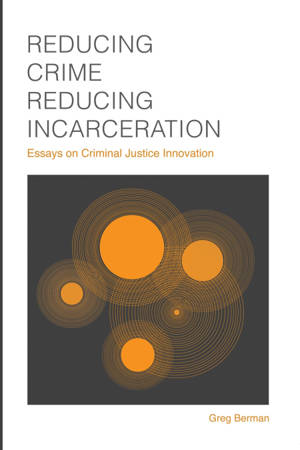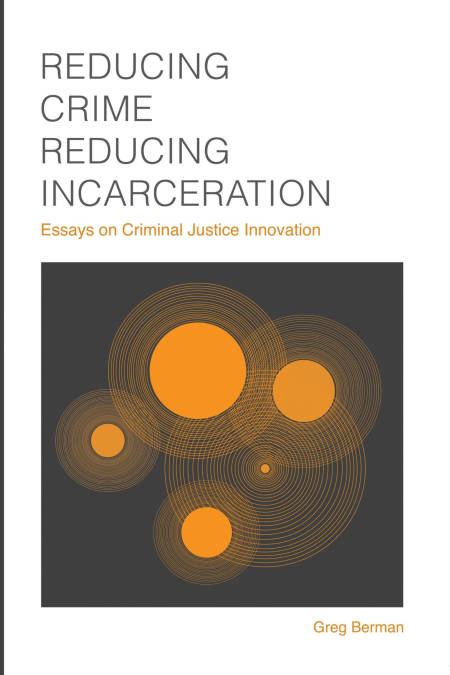
- Afhalen na 1 uur in een winkel met voorraad
- Gratis thuislevering in België vanaf € 30
- Ruim aanbod met 7 miljoen producten
- Afhalen na 1 uur in een winkel met voorraad
- Gratis thuislevering in België vanaf € 30
- Ruim aanbod met 7 miljoen producten
Reducing Crime, Reducing Incarceration: Essays on Criminal Justice Innovation E-BOOK
Greg BermanOmschrijving
A new collection of compelling and challenging essays from one of the nation's leading voices on criminal justice reform, 'Reducing Crime, Reducing Incarceration' makes the argument that sometimes small changes on the ground can add up to big improvements in the criminal justice system.
How do you launch a new criminal justice reform? How do you measure impact? Is it possible to spread new practices to resistant audiences? And what's the point of small-bore experimentation anyway? Greg Berman answers these questions by telling the story of successful experiments like the Red Hook Community Justice Center in Brooklyn and by detailing the challenges of implementing new ideas within the criminal justice system. As Laurie Robinson, a professor at George Mason University, writes in her introduction: "Berman offers vivid testimony that—even in the face of opposition—it is, in fact, possible to push our criminal justice system closer to realizing its highest ideals. And that, indeed, is good news." Other experts share their opinions:
"The central insight of 'Reducing Crime, Reducing Incarceration' is that small tweaks in practice within the criminal justice system can sometimes lead to big change on the streets. By telling the story of the Red Hook Community Justice Center and similar innovations, Greg Berman offers a hopeful message: criminal justice reform at the local level can make a difference."
— James B. Jacobs
Warren E. Burger Professor of Law
New York University School of Law
"Innovation is hard work. In 'Reducing Crime, Reducing Incarceration,' Berman offers a look at how change happens at the local level—and how, sometimes, it doesn't. These well-written essays offer a compelling vision of both the challenges and opportunities of criminal justice reform."
— Nicholas Turner
President, Vera Institute of Justice
"The topic of criminal justice reform has challenged and bedeviled social thinkers for centuries. In this book, Berman offers a clear-eyed and inventive approach to the problem. Recognizing that change is best achieved at the local level with small, incremental steps using demonstration projects, Berman provides concrete examples of both successes and failures stemming from the work of the Center for Court Innovation over the last two decades. For anyone interested in the future of criminal justice, this book should be on the top of the 'must read' list."
— John H. Laub
Distinguished University Professor, Department of Criminology and Criminal Justice
University of Maryland, College Park
Specificaties
Betrokkenen
- Auteur(s):
- Uitgeverij:
Inhoud
- Taal:
- Engels
Eigenschappen
- Productcode (EAN):
- 9781610272124
- Verschijningsdatum:
- 15/12/2013
- Uitvoering:
- E-book
- Formaat:
- ePub

Alleen bij Standaard Boekhandel
Beoordelingen
We publiceren alleen reviews die voldoen aan de voorwaarden voor reviews. Bekijk onze voorwaarden voor reviews.









